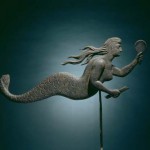Killing Fidel October 8, 2014
Author: Beach Combing | in : Contemporary
The 1975 Church Committee looked at rogue or extreme CIA activities and took a particular interest in the decision in the late 1950s and early 1960s to kill foreign heads of state, who were deemed unfriendly to US interests. Chief of these was, of course, Fidel Castro, a man who had both succeeded in making […]
Fewest Casualties… June 25, 2013
Author: Beach Combing | in : Contemporary, Modern
In what modern war did the fewest people die? Beach has been wasting a couple of joyful hours this morning looking through the annals of battles past and some dodgy Wikipedia pages. He has built in several limits to the survey. First, he has restricted himself to the nineteenth and twentieth centuries, where it is […]
The Queen of Cuba, Mermaids and a Far-Swimming Slave October 2, 2012
Author: Beach Combing | in : Modern
***Thanks to Invisible for the gem below*** 7 August 1871 this appeared in the Brooklyn Eagle, having apparently been excerpted from the Richmond Dispatch. The story’s title was Saved by Mermaids: A Story which Lacks Confirmation, one way of being polite about an enjoyable farrago. Apologies ahead of time for the racist tone of parts […]
Llewellyn Thompson: Champion of the World June 20, 2012
Author: Beach Combing | in : Contemporary
Beach has pioneered on this blog ‘hinge moments’, those instances when world history changes. In any list of these moments, the Cuban Missile crisis is a must, because this is, of course, the closest the human race has come to mutually assured destruction. But what moment within the missile crisis was the key one? Almost […]
The Crocodile, the Dog and the Wardrobe December 3, 2010
Author: Beach Combing | in : Modern
Beachcombing always enjoys the passion with which nineteenth-century naturalists captured and then observed their prey, from sugaring early gas lamps to taking out the rifle whenever a rare bird flew into their garden. He particularly enjoyed this passage (just sent in by a correspondent) from the works of that German polymath Alexander von Humboldt (1859), […]


